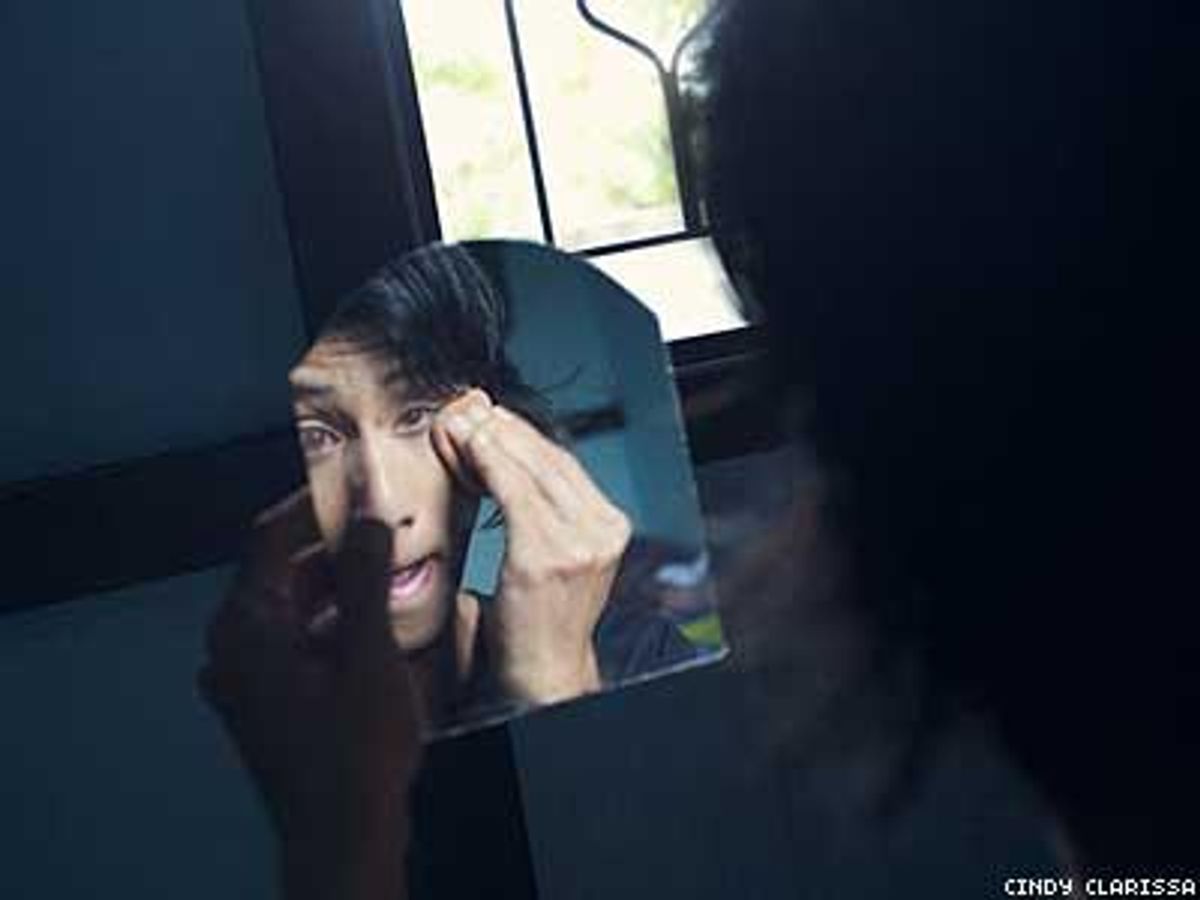
[Editor's note -- We asked why Clarissa referred to Aulia as a 'he' if he is transgender. Here is her reply: "With regards to your question on why I refer to Aulia as a 'he' instead of a 'she' for me it's because I sense a deep struggle between Aulia's female identity and his/her belief in religion. Aulia is a devout Muslim, brought up in a deeply religious family, and still lives in a highly religious community. In the context of Aulia's religion, to turn oneself into a woman when one is born physically as a man means going against God's will. And my reference to Aulia as a 'he' is a way of respecting that, the belief that seems to be Aulia's only pillar of strength in the darkest times. I don't know if that makes sense, it probably doesn't."]
Love can be found in the most unlikely places, so can greatness. I was fortunate enough to have met Aulia during my visit to West Borneo this year and shared a slice of his life. He told me he sees his life as that of a mermaid, split between two realms. Having been born with a female identity trapped in a male's body, he had fought hard within and without to be where he is today.

A transgender person's (waria*) life in Indonesia is dominated with stigma and discrimination. Marginalized by society, rejected by religion and ostracized by their family, many young transgender are left to "figure it out" on their own. Most end up gravitating toward the dominant transgender community, already rife with its own issues of prostitution and HIV.
*Indonesians refer to transgender people as waria, a word created combining two words that is: wanita (woman) and pria (man).

Seeing a friend die of AIDS, Aulia turned into a fervent volunteer for HIV prevention. Once his friend, weak because of the illness, needed to be taken to the hospital for help. Not having a vehicle of his own, Aulia went from friend to friend to find someone willing to lend their motorbike until he found one. With the sick friend on his back, they went to the hospital, and there they were faced with procedural and financial challenges. He took on the responsibility of guaranteeing payment for his friend's medication. Without money himself, Aulia then raised funds within the transgender community to help the friend. On his friend's death, he too had to make the decision on informing the friend's family. "There are moments when we need to make a decision to be a hero or a coward," he said about the experience.

For the past five years, he has been working as a volunteer in the HIV/AIDS prevention field. And for this he is not compensated financially. He makes ends meet through working as a freelance door-to-door hairdresser, earning around 50,000 rupiah, equivalent to $6, a day when he has clients.

Sometimes the very people he helped do not recognize it and turn their backs on him. I questioned his motivation to keep going. He said to me, "People call us [transgender people] creature of the valley of darkness, but even within that darkness, there is a ray of light that can help others. Time is precious, and as long as there is time for me to help others, why don't I do it?"

My days spent with Aulia have enriched me in ways that are intangible. He shared with me the many facets of his life, and with it, amplify my universe. I can see how much he loves his people, people with HIV and high-risk communities such as transgender people and sex workers. Embracing these marginalized groups is more than a job or a passion, it is personal. "I was once an outcast. Nobody accepts me. Now I want to embrace those who are rejected because I know how it feels," he told me later. There is a certain fragility about him, a kind of brokenness, yet he is immensely strong. Stronger then he or anyone thinks he is.

It took him 25 years to finally accept his own identity. He has found acceptance within himself, saying "I travel my journey with what I have, with sincerity, that is my portion in life."

One night in a cafe he shared a story with me. Once, during a training course, the organizer asked the participants to draw their hopes and dreams. He drew a mermaid sitting on a rock in the middle of the ocean and behind her, on the land, there is a family and a house. The mermaid, longing to live both on the land and the sea, represents his current state of being, split between male and female. The family is his dream of one day becoming "the perfect human like everyone else" and to be able to have his own family. The house is his desire to be able to build a care house for people with HIV/AIDS, especially those who have no one to turn to. A place where they will be cared for physically, mentally and spiritually. A place of hope and dignity.


Born in Indonesia, Cindy spent the past decade of her life in Australia, where she discovered photography and her passion to tell stories through still images. In her work she focuses on documentary-style- photography with the intent of capturing and sharing the truth and beauty through her lens. Currently Cindy Clarissa is a freelance photographer based in Indonesia, available for assignments worldwide.




























































































